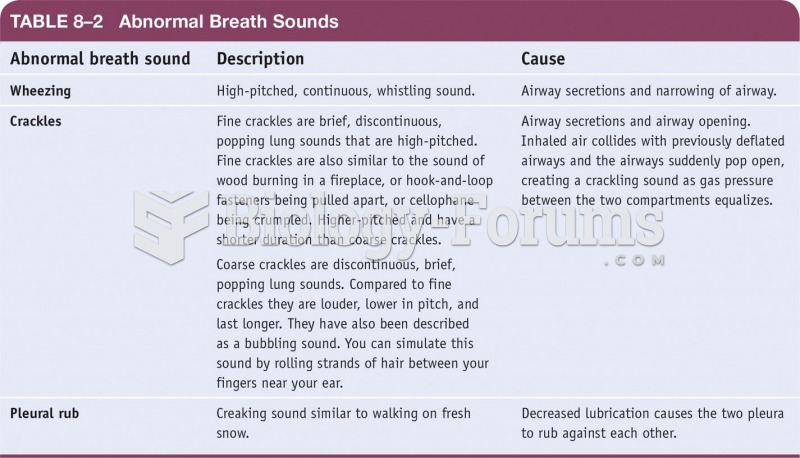|
|
|
Alzheimer's disease affects only about 10% of people older than 65 years of age. Most forms of decreased mental function and dementia are caused by disuse (letting the mind get lazy).
Chronic marijuana use can damage the white blood cells and reduce the immune system's ability to respond to disease by as much as 40%. Without a strong immune system, the body is vulnerable to all kinds of degenerative and infectious diseases.
Today, nearly 8 out of 10 pregnant women living with HIV (about 1.1 million), receive antiretrovirals.
Vaccines prevent between 2.5 and 4 million deaths every year.
One way to reduce acid reflux is to lose two or three pounds. Most people lose weight in the belly area first when they increase exercise, meaning that heartburn can be reduced quickly by this method.
 Children with attention deficit disorder with hyperactivity (ADHD) diagnoses typically need a quiet, ...
Children with attention deficit disorder with hyperactivity (ADHD) diagnoses typically need a quiet, ...
 Common skin signs are often evidence of an illness or disorder. An erosion or ulcer is an eating or ...
Common skin signs are often evidence of an illness or disorder. An erosion or ulcer is an eating or ...





